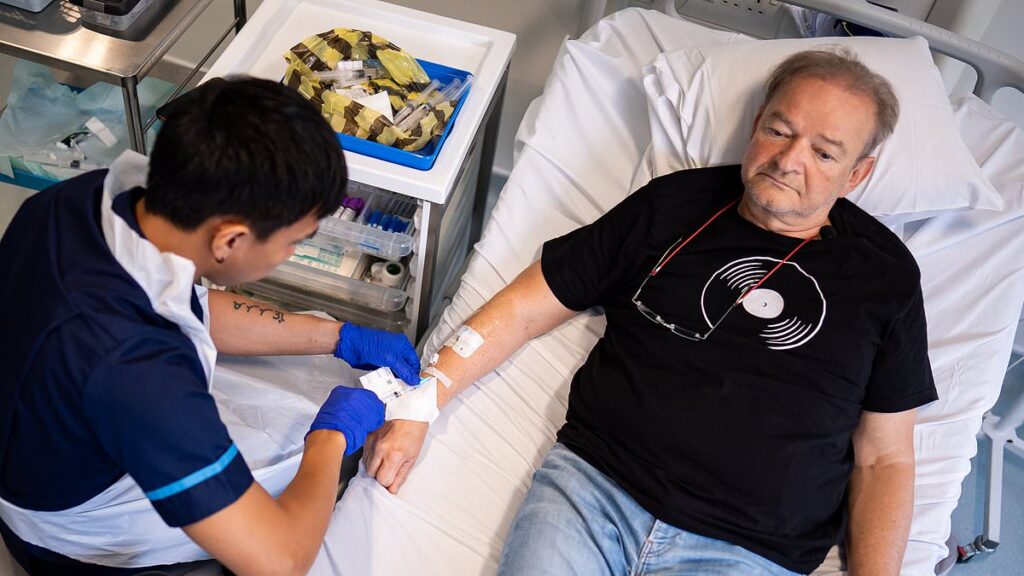World’s First mRNA Lung Cancer Vaccine Trial Begins, Offering New Hope for Thousands
Doctors have begun trialling the world’s first mRNA lung cancer vaccine in patients, marking a “groundbreaking” step with the potential to save thousands of lives. Lung cancer, the leading cause of cancer deaths globally, claims about 1.8 million lives each year, with survival rates particularly poor in advanced cases.
The new vaccine, known as BNT116 and developed by BioNTech, is being tested in a phase 1 clinical trial across 34 research sites in seven countries, including the UK, US, and Germany. The UK has six sites involved, with the first patient receiving the vaccine on Tuesday.
BNT116 is designed to treat non-small cell lung cancer (NSCLC), the most common form of lung cancer. The vaccine works by using mRNA technology, similar to that in COVID-19 vaccines, to instruct the immune system to target and destroy cancer cells, potentially preventing their return.
“It’s simple to deliver, and you can select specific antigens in the cancer cell, and then you target them. This technology is the next big phase of cancer treatment,” said Prof Siow Ming Lee, a consultant medical oncologist at University College London Hospitals (UCLH), which is leading the UK trial.
The trial will enroll around 130 patients, including about 20 from the UK, who will receive the jab alongside immunotherapy. Among the first to receive the vaccine is Janusz Racz, 67, a London-based scientist specializing in AI, who began his treatment at UCLH on Tuesday. He described his participation as an opportunity to contribute to a potentially life-saving breakthrough.

The mRNA vaccine is administered through six consecutive injections in one session, followed by weekly doses for six weeks and then every three weeks for just over a year.
Prof Lee, a veteran in lung cancer research, expressed hope that this new approach could significantly boost survival rates when combined with existing immunotherapy treatments.
The trial is part of a broader effort by the NHS to fast-track patients into groundbreaking cancer vaccine trials, offering new hope in the fight against the disease.










Join our Channel...